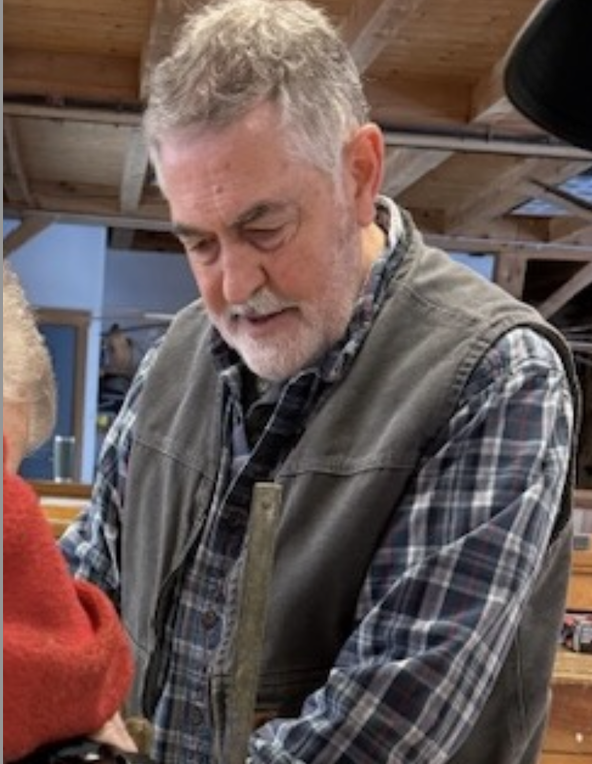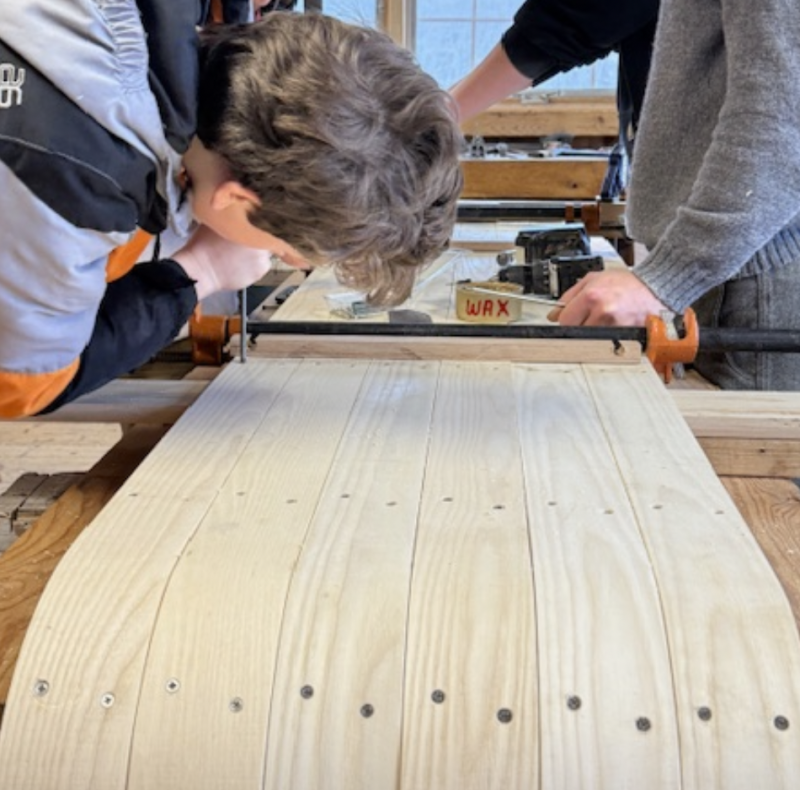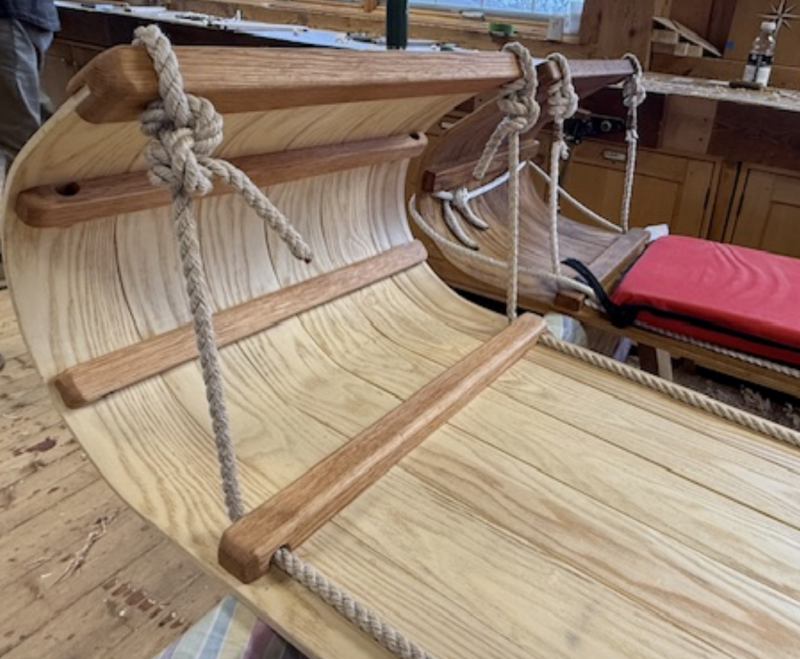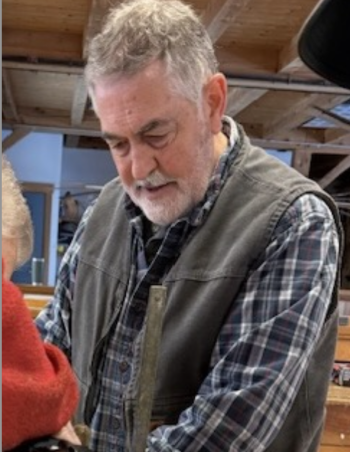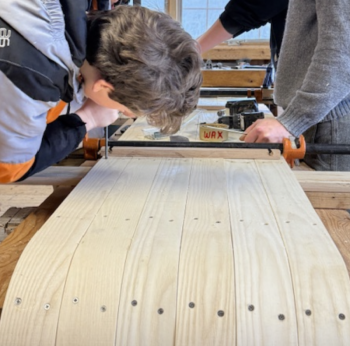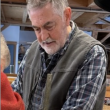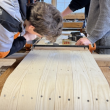Carpenter’s Boat Shop gives local students a primer on toboggan building
In his peak seasons, Ken Elowe would build as many as 22 toboggans a year. In recent weeks, however, he’s been focused on construction oversight of three new wooden downhill racers—a project sponsored by the Carpenter’s Boat Shop and two groups of six students from Great Sale Bay School (GSB).
For Elowe and Carpenter’s it’s the second time around using tobacco-building as a teamwork-building program: A year ago, a small group of students at Maine Academy of Natural Sciences (MANS) trekked 70 miles from their Fairfield campus for the initial engagement.
The ball toward the repeat downhill-conveyance course began with a conversation Alicia Witham, Carpenter’s executive director, had with the folks at the affiliated GBS, as the not-for-profit Boat Shop constantly always keeps a sharp eye out for ways to engage the local community.
For Great Salt Bay, the timing was ideal: It was looking for ways to give its students something different—something that, in this case, would incorporate math (specifically, the math of measurement), science (in this case, the science of wood), and a little of the engagement of magic (the magic of bending wood is an integral part of the toboggan-building process).
And, for the second year in a row, Ken Elowe was the right man in the right place. In the years he worked with the Department of Inland Fisheries and Wildlife, he would spent nights and weekends building and restoring wooden boats until, he recalls, “Someone asked me, ‘Can you build a toboggan?’”
He pulled an old book from his shelf—a tome rich in colorful illustrations and hands-on instructions—and set to work teaching himself how to adjust his boat-building knowledge to constructing an entirely different kind of craft. With the art mastered, he’s been willing to share his lessons with Carpenter’s audiences.
Though he’d recently retired from a 23-year stint on the Boat Shop board, he still shows up at the Pemaquid as a volunteer/instructor on a variety of projects. When Witham raised the question about toboggan-building, Elowe raised his hand.
As Kami Peaslee, who accompanied one of two student clusters to the Boat Shop campus, explains, “ We wanted to think about bringing kids to the Boat Shop…. We already had after-school program happenings, and we came up with the idea to have a group come down to do this work during the school day.”
A grant proposal followed, and, with its approval, a dozen students enrolled in the toboggan project. With the form in place the function begam to fall into place. Says Elowe. “We got white ash from up north at Lumbra Hardwoods in Milo, Maine,” 120 miles north of the Bristol campus. “I used to work with them for many years and they selected just the right log for us. It’s beautiful wood.”
“What I wanted to get across to them was like a primer to woodworking,” reports Matthew Dirr, the Boat Shop’s wooden boat building instructor, “so they would gain an understanding of grain as they learned to do things with hand tools. We also did quite a lot of rounding of the pieces with a plane.
“The toboggan is just kind of a vehicle for the work to have purpose…. They all seemed to engage with that at different levels. These guys were super enthusiastic to make a nice thing.”
Adds Peaslee, “I feel they have learned respect for the Carpenter’s facility, for the tools, and for the things they're doing. They've measured, they've sanded, they've used tools. The Boat Shop staff and volunteers have been amazing, and they've all been very focused.”
After four weeks of hard work, the gratification was immediate. At 6:30 the Saturday morning after the last Friday class, the student builders boarded a bus at GBS, trekked over to the Boat Shop, picked up their finished works, and headed North to race in the Camden Snowbowl 2025 U.S. National Toboggan Championships.

